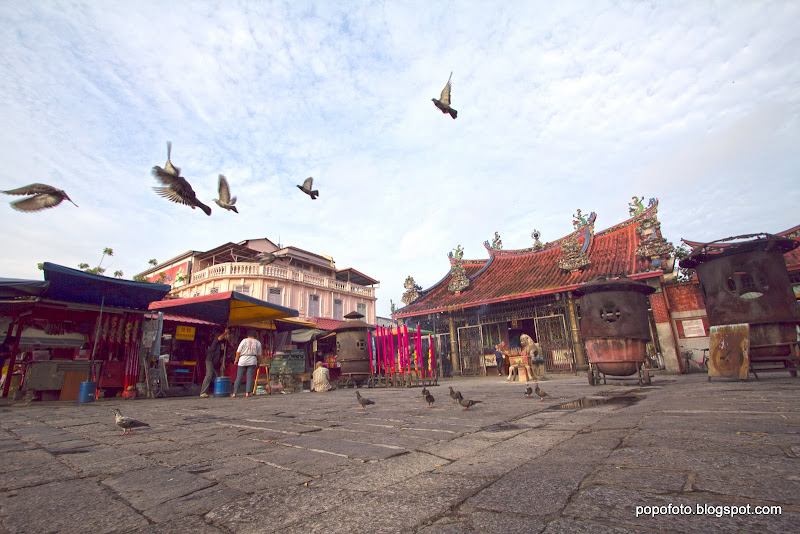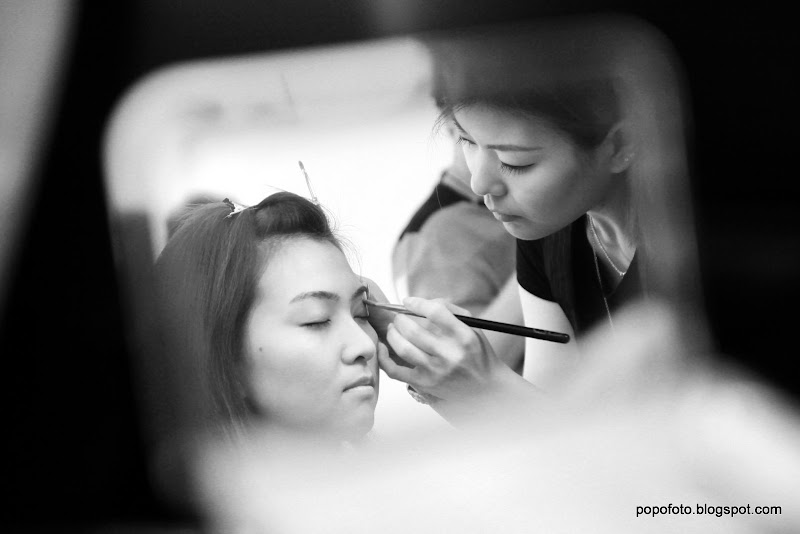Now, why I caps those words, because it took me sometime before I truely understand about photography. Well, most of the people understand the first part "capture the precious moment", but mostly miss out the "ANYTHING THAT CAN TAKE A PHOTO". So, sometimes, when I was out, with only my iphone, and here comes some really touching scene, the first thing in my mind was "Only if I have my 60D/LX3 then I can really take a nice photo". When I finish the thought, everything is gone. Or when I snap photo using my iphone, the condition way pass its ability and it becomes blur, it is seldom hit my mind that to switch it to video mode and just take it as a video.
Now, I had understand both part, it comes to the question on how to really take a "nice" photo. First, we had to understand what make up a photo. For me, there are only 2 parts to construct a photo:
1. Composition
2. Light
and in my own context:
Composition = My eyes
Light = My feeling
Ok, now come the tough part. As Composition represents my eyes and Light represents my feeling, how do I convey those through the photo? Between composition and light, composition is easier to understand and control, plus light is now very well control by the algorithm in the camera. So, I'll talk about composition first.
In simple term, composition is about translating what my eyes see into photo, it is about what subject and what message I wish to convey. Now, there are lots of things in composition, and here I'll talk about the most important part of composition first, which is:
So, next question is what to frame? The most important is the subject. The subject must always in the frame, and where to place your subject in the frame is depends on the individual preference. Anyway, there is some standards when you take photo...
1. Portrait: The key is to always take the photo at the same eye levels as your model, and careful with the framing to ensure no chop hand, chop leg, chop head or tree growing out from the head. Example:

In this photo, if you look carefully, you can see that there is a tree growing out from the head, the only thing is that the expensive f2.8 lens successfully blur it out and it becomes not obvious, thus save the photo. :P
2. Landscape: Make sure the main subject, the sun, the tree, the building, the road, the river are clear from any distraction. This is the main challenge in landscape photography. Example:

In this photo, notice the 2 big burning oven on the right side? It will be nice if it is not there, but sometime we have to compromise to the situation, or be very hardwork running here and there to get the best shot (I'm lazy, so I just shoot the pic. :P)
So, here comes the ONLY technical terms I know for composition which has serve me well enough:
Framing
So, what is the important things we need to realize when we do framing is the point of view. One huge difference that we always miss out is that human's eye view is much wider compare with camera's lens, that''s why lots of people who just start on photography always feel disappointed and lots of hesitation when try to take photo. That's why it is very important to practice on framing first as a start for photography.
Now, how to practice on framing effectively? For me, I always use a fixed lens (prime lens). When you have no option to change your view angle (can't zoom in or out), you are force to work hard to frame your photo, and sometimes you'll get new idea on framing as well.
So, next question is what to frame? The most important is the subject. The subject must always in the frame, and where to place your subject in the frame is depends on the individual preference. Anyway, there is some standards when you take photo...
1. Portrait: The key is to always take the photo at the same eye levels as your model, and careful with the framing to ensure no chop hand, chop leg, chop head or tree growing out from the head. Example:

In this photo, if you look carefully, you can see that there is a tree growing out from the head, the only thing is that the expensive f2.8 lens successfully blur it out and it becomes not obvious, thus save the photo. :P
2. Landscape: Make sure the main subject, the sun, the tree, the building, the road, the river are clear from any distraction. This is the main challenge in landscape photography. Example:

In this photo, notice the 2 big burning oven on the right side? It will be nice if it is not there, but sometime we have to compromise to the situation, or be very hardwork running here and there to get the best shot (I'm lazy, so I just shoot the pic. :P)
So, here comes the ONLY technical terms I know for composition which has serve me well enough:
Rule of Third
What is "Rule of Third"? It means to place your subject at the focus point in the frame, which is like below (found the illustration from google search):
Now, if you check back the 2 examples I shown above, you'll realize that the main subject is on the focus point in the frame according to "Rule of Third".
The toughest part about "Rule of Third" is the execution part. The theory itself is simple, but usually (just like me last time) people will tend to place the subject in the center of the frame and it took me like 1 - 2 years to fix that (since no one is guiding me...).
So, lastly, good luck in practicing on composition......more to come in the next article. :P



















































